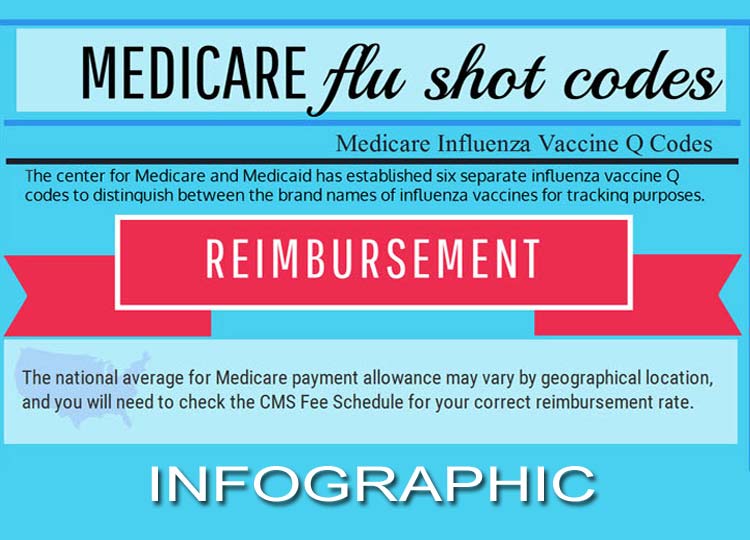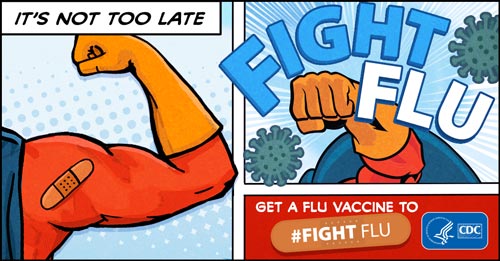Laureen shows you her proprietary “Bubbling and Highlighting Technique”
Download your Free copy of my "Medical Coding From Home Ebook" at the top right corner of this page 2018 CPC Practice Exam Answer Key 150 Questions With Full Rationale (HCPCS, ICD-9-CM, ICD-10, CPT Codes) Click here for more sample CPC practice exam questions with Full Rationale Answers Click here for more sample CPC practice exam questions and answers with full rationaleTag Archives: Shot
Flu shot
Since we bill injection at higher rate than vaccine, is the sequencing important?
Thanks
flu shot
Since we bill injection at higher rate than vaccine, is the sequencing important?
Thanks
Nurse Visit with Depo Shot
If a pt comes in for a depo shot and the nurse discusses/educate on other forms of BC at the visit, would this be included in the 96372? A 99211 cannot be billed just because of the education, correct?
Thanks!
Temporary Flu Shot Codes
She wants me to find out if and who is using them and what they are. :confused:
I’ve tried calling like she asked me to, but I got the response I expected (we can’t tell you what to bill)
Can anyone tell me either who is using what codes or where I might look/call to find out?
Allergy Shot Diagnosis
The list below makes little sense to me as the T codes I would think would be unusable as they can’t be a primary code. Also if you are suffering the effects currently of a bite or sting I can’t imagine that being the best time to administer an allergy shot. I’m having trouble understanding why a code for desensitization of allergens would not be acceptable for allergy shots. I have not received denials from any other carrier or even on any other patient. What are your experiences and can you offer any advise?
ICD-10 Code Description
H10.411 – H10.413 – Chronic giant papillary conjunctivitis, right eye – Chronic giant papillary conjunctivitis, bilateral
H10.419 Chronic giant papillary conjunctivitis, unspecified eye
H10.45 Other chronic allergic conjunctivitis
J30.0 – J30.2 Vasomotor rhinitis – Other seasonal allergic rhinitis
J30.81 Allergic rhinitis due to animal (cat) (dog) hair and dander
J30.89 Other allergic rhinitis
J30.9 Allergic rhinitis, unspecified
J45.21 Mild intermittent asthma with (acute) exacerbation
J45.22 Mild intermittent asthma with status asthmaticus
J45.31 Mild persistent asthma with (acute) exacerbation
J45.32 Mild persistent asthma with status asthmaticus
J45.41 Moderate persistent asthma with (acute) exacerbation
J45.42 Moderate persistent asthma with status asthmaticus
J45.51 Severe persistent asthma with (acute) exacerbation
J45.52 Severe persistent asthma with status asthmaticus
J45.901 Unspecified asthma with (acute) exacerbation
J45.902 Unspecified asthma with status asthmaticus
J45.909 Unspecified asthma, uncomplicated
J45.998 Other asthma
J82 Pulmonary eosinophilia, not elsewhere classified
T63.421A Toxic effect of venom of ants, accidental (unintentional), initial encounter
T63.421D Toxic effect of venom of ants, accidental (unintentional), subsequent encounter
T63.422A Toxic effect of venom of ants, intentional self-harm, initial encounter
T63.422D Toxic effect of venom of ants, intentional self-harm, subsequent encounter
T63.423A Toxic effect of venom of ants, assault, initial encounter
T63.423D Toxic effect of venom of ants, assault, subsequent encounter
T63.424A Toxic effect of venom of ants, undetermined, initial encounter
T63.424D Toxic effect of venom of ants, undetermined, subsequent encounter
T63.441A Toxic effect of venom of bees, accidental (unintentional), initial encounter
T63.441D Toxic effect of venom of bees, accidental (unintentional), subsequent encounter
T63.442A Toxic effect of venom of bees, intentional self-harm, initial encounter
T63.442D Toxic effect of venom of bees, intentional self-harm, subsequent encounter
T63.443A Toxic effect of venom of bees, assault, initial encounter
T63.443D Toxic effect of venom of bees, assault, subsequent encounter
T63.444A Toxic effect of venom of bees, undetermined, initial encounter
T63.444D Toxic effect of venom of bees, undetermined, subsequent encounter
T63.451A Toxic effect of venom of hornets, accidental (unintentional), initial encounter
T63.451D Toxic effect of venom of hornets, accidental (unintentional), subsequent encounter
T63.452A Toxic effect of venom of hornets, intentional self-harm, initial encounter
T63.452D Toxic effect of venom of hornets, intentional self-harm, subsequent encounter
T63.453A Toxic effect of venom of hornets, assault, initial encounter
T63.453D Toxic effect of venom of hornets, assault, subsequent encounter
T63.454A Toxic effect of venom of hornets, undetermined, initial encounter
T63.454D Toxic effect of venom of hornets, undetermined, subsequent encounter
T63.461A Toxic effect of venom of wasps, accidental (unintentional), initial encounter
T63.461D Toxic effect of venom of wasps, accidental (unintentional), subsequent encounter
T63.462A Toxic effect of venom of wasps, intentional self-harm, initial encounter
T63.462D Toxic effect of venom of wasps, intentional self-harm, subsequent encounter
T63.463A Toxic effect of venom of wasps, assault, initial encounter
T63.463D Toxic effect of venom of wasps, assault, subsequent encounter
T63.464A Toxic effect of venom of wasps, undetermined, initial encounter
T63.464D Toxic effect of venom of wasps, undetermined, subsequent encounter
T78.2XXA Anaphylactic shock, unspecified, initial encounter
T78.40XA Allergy, unspecified, initial encounter
T78.49XA Other allergy, initial encounter
T88.6XXA Anaphylactic reaction due to adverse effect of correct drug or medicament properly administered, initial encounter
Z91.030 Bee allergy status
Z91.038 Other insect allergy status
Z91.048 Other nonmedicinal substance allergy status
Z91.09 Other allergy status, other than to drugs and biological substances
Medicare Flu Shot Q Code Infographic

Medicare Influenza Vaccine Codes
With the flu shot season well upon us, many healthcare providers are wondering how to bill influenza vaccines for their Medicare patients. The center for Medicare and Medicaid has established six separate influenza vaccine Q codes to distinguish between the brand names of influenza vaccines for tracking purposes.
We tried our hand at producing our first ever infographic of flu vaccine codes. It’s a bit simplistic but it’s a quick visual on all of these Medicare Q codes. Hopefully we will make some more on other topics.
Before you select one of these codes to use, however, it’s important that you bill out for the administration of the vaccine itself. Use the Medicare-specific code G0008 Administration of Influenza Vaccine along with the correct Q code.
Use the G0008 code along with one of the following:
Q2034 Agriflu Vaccine:
Influenza virus vaccine, split virus, for intramuscular use (Agriflu)
Q2035 Afluria Vaccine:
Influenza virus vaccine, split virus, when administered to individuals 3 years of age and older, for intramuscular use (Afluria)
Q2036 Flulaval Vaccine:
Influenza virus vaccine, split virus, when administered to individuals 3 years of age and older, for intramuscular use (Flulaval)
Q2037 Fluvirin Vaccine:
Influenza virus vaccine, split virus, when administered to individuals 3 years of age and older, for intramuscular use (Fluvirin)
Q2038 Fluzone Vaccine:
Influenza virus vaccine, split virus, when administered to individuals 3 years of age and older, for intramuscular use (Fluzone)
Q2039 NOS (Not Otherwise Specified) Vaccine:
Influenza virus vaccine, split virus, when administered to individuals 3 years of age and older, for intramuscular use (Not Otherwise Specified)
Reimbursement
Remember that how much Medicare pays depends on your location. Check the CMS Fee Schedule to find your reimbursement rate.
Your local Medicare carrier may also have its own specific billing rules, so check that out too when billing.
Find your CMS Fee Schedule: https://www.cms.gov/apps/physician-fee-schedule/overview.aspx
Additional information from Medicare: http://www.cms.gov/MLNMattersArticles/downloads/MM7234.pdf
For a video on Medicare flu shot coding go to: What are the Medicare Flu Shot Codes

Medicare Flu Shots Codes Infographic – An infographic by the team at Capture Billing
Embed Medicare Flu Shots Codes Infographic on Your Site: Copy and Paste the Code Below
— This post Medicare Flu Shot Q Code Infographic was written by Manny Oliverez and first appeared on Capture Billing. Capture Billing is a medical billing company helping medical practices get their insurance claims paid faster, easier and with less stress allowing doctors to focus on their patients.
Is Getting the Flu Shot Worth It?

As a public health nurse my answer to this question is a resounding and exuberant “YES! It is worth getting a flu shot!” And I would quickly follow that up with “Do you want the shot in your right or left arm?” with an alcohol pad at the ready to disinfect my injection site.
With so much misinformation about what a flu shot does or doesn’t provide, it’s no wonder people get confused.
“Prevention” is every public health nurse’s mantra and getting a flu shot is the first step in preventing the flu.
With few exceptions, flu shots are recommended for anyone 6 months old or older, according to the Center for Disease Control and Prevention (CDC) Here are three good reasons the flu shot is worth it:
REASON #1: The flu shot can actually prevent you from getting the flu.
Reap the benefits of all the research done to predict the flu viruses that will be most common during the flu season! Influenza is a serious and contagious respiratory illness that can lead to complications, hospitalizations, even death.
The bonus to getting yourself vaccinated for flu is that you also protect your loved ones and others in your community from getting the flu as well. You may not have a newborn or grandma living with you at home, but I promise you, the people behind you in the checkout lane who are about to touch the same flat surface or keypad that you just coughed on, do.
So do your part in preventing illness and its spread and get your flu shot.
REASON #2: The flu shot can reduce the risk of flu-associated hospitalizations.
There are studies that indicate a reduced risk for flu-related hospitalizations for both children and older adults. Of the thousands of flu-related deaths  every year, 80-90% of them occur with people 65 years old or older. The flu shot has been associated with preventing hospitalizations among people with chronic conditions such as diabetes, heart disease, and lung disease.
every year, 80-90% of them occur with people 65 years old or older. The flu shot has been associated with preventing hospitalizations among people with chronic conditions such as diabetes, heart disease, and lung disease.
In case your aversion to hospitals is greater than your aversion to getting the flu, allow me to remind you that a visit to the hospital is no joy ride. There is no dignity in those backless gowns, there’s no real privacy with aides, nurses, respiratory therapists, and doctors coming in and out of your room. Oh and let’s not forget the tab that is racked up whilst providing you that memorable experience. Need I say more?
REASON #3: The flu shot can make your illness milder if you do get sick.
Let’s be clear, a flu shot does not guarantee protection against the flu. However, a flu shot does initiate the production of antibodies in your body.
Your immune protection begins two weeks after immunization. So if you do end up getting the flu, the fever, chills, muscle aches, cough, and fatigue can be milder than if you went without the flu shot. If you have milder symptoms you are also less likely to suffer complications that can lead to hospitalization and we have already established why we want to avoid that.
Which leads me to another important point…The flu shot does NOT cause you to have flu.
Viruses that cause the common cold produce similar symptoms as the flu and they are just as contagious and ubiquitous during flu season. This is where good old fashioned hand washing with soap, water, and vigorous scrubbing action play an important role in decreasing or getting rid of the viruses you have picked up from the light switch, door handles, gas pumps, elevator buttons, keyboards etc.
Have a cough? Don’t share! Contain those germs in a tissue and toss it immediately! Hand sanitizers are a good substitute if you are not able to some water and soap.
Is getting the flu shot worth it? You don’t have to take my word for it, talk to your healthcare provider or check out more over at the CDC’s website.
Wishing all of you a healthy, safe, and flu vaccinated holiday season!
— This post Is Getting the Flu Shot Worth It? was written by Ivonne Rivera-Newberry BS RN and first appeared on Capture Billing. Capture Billing is a medical billing company helping medical practices get their insurance claims paid faster, easier and with less stress allowing doctors to focus on their patients.





